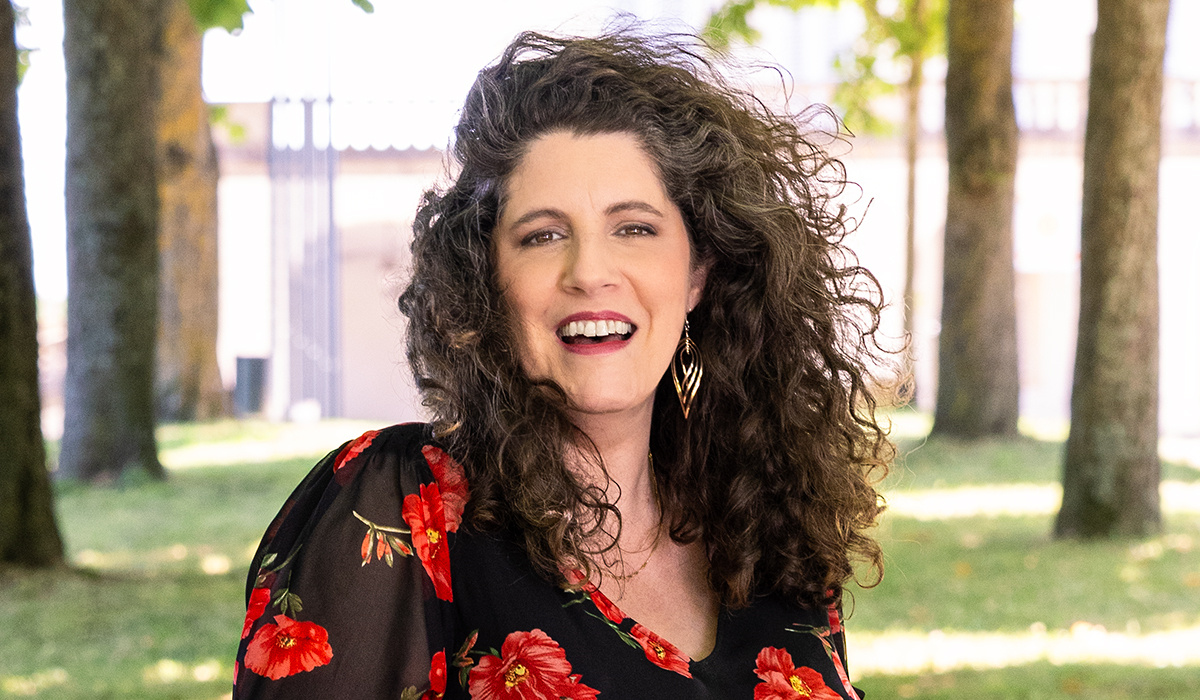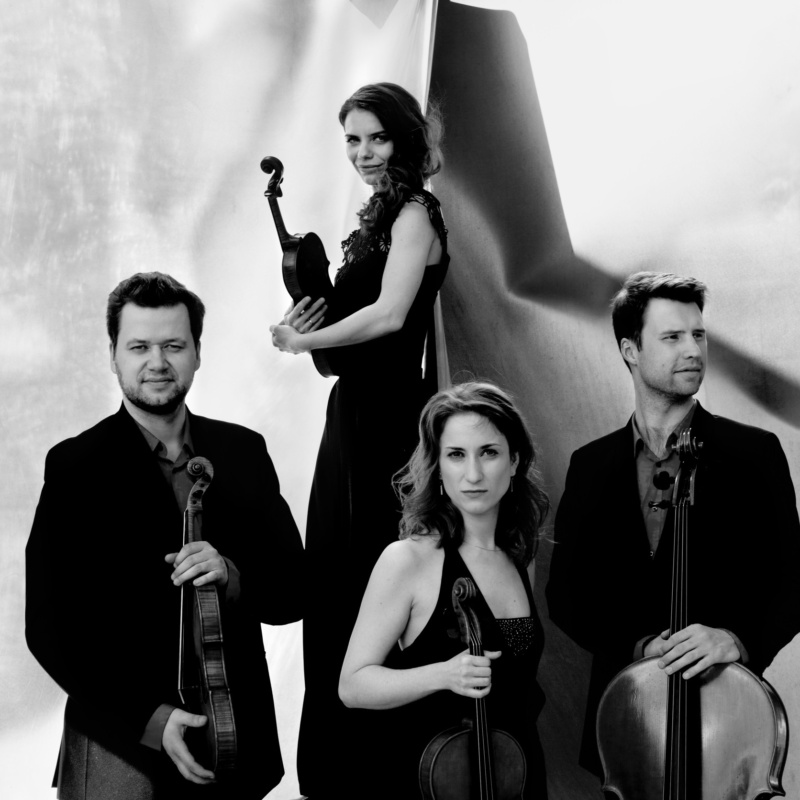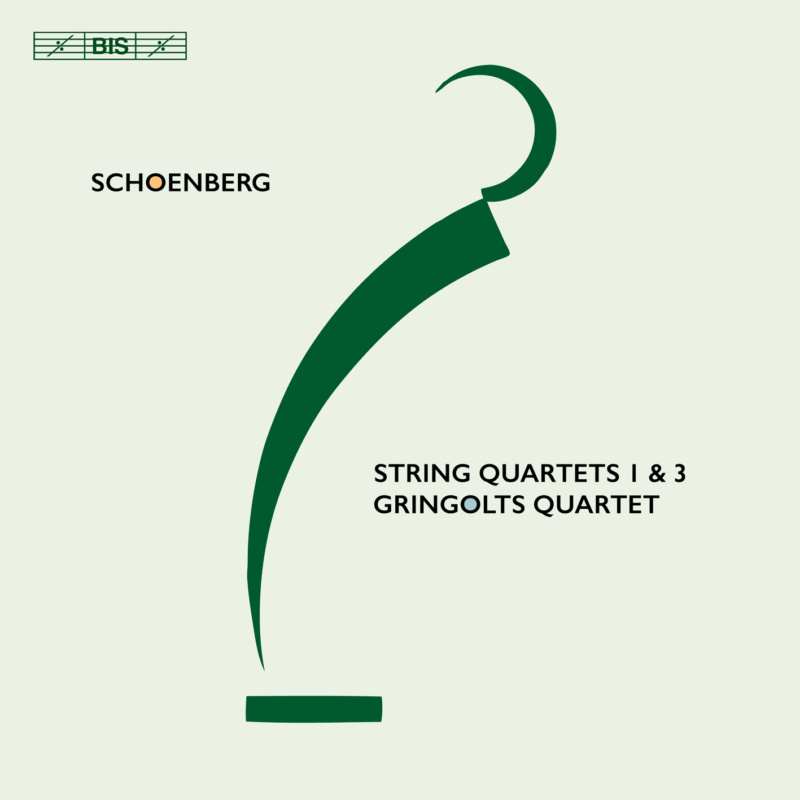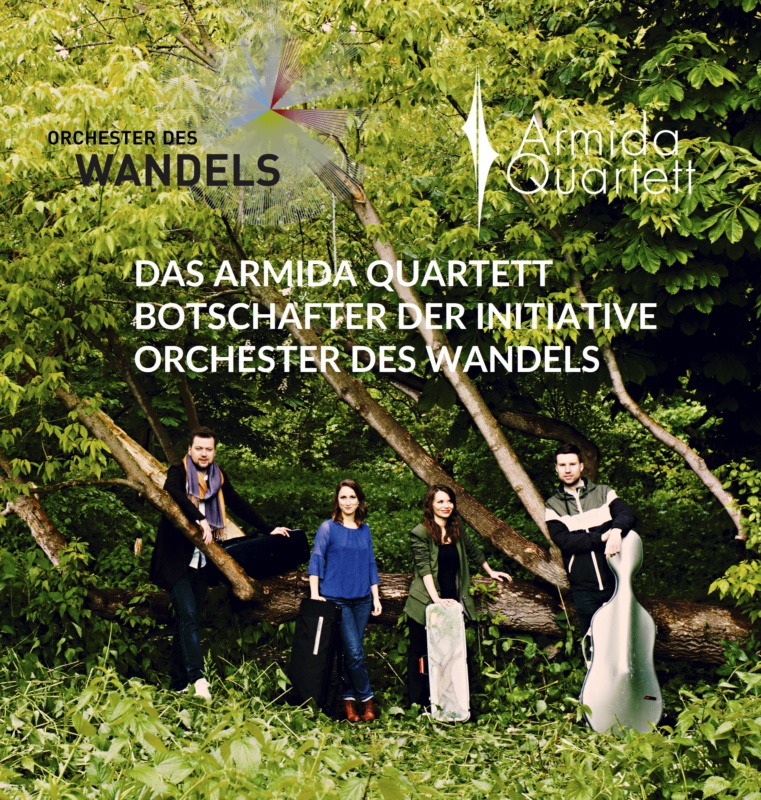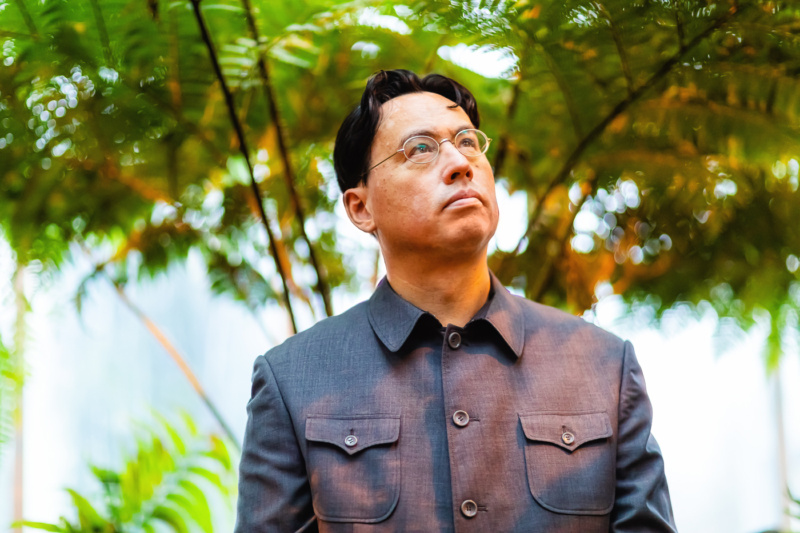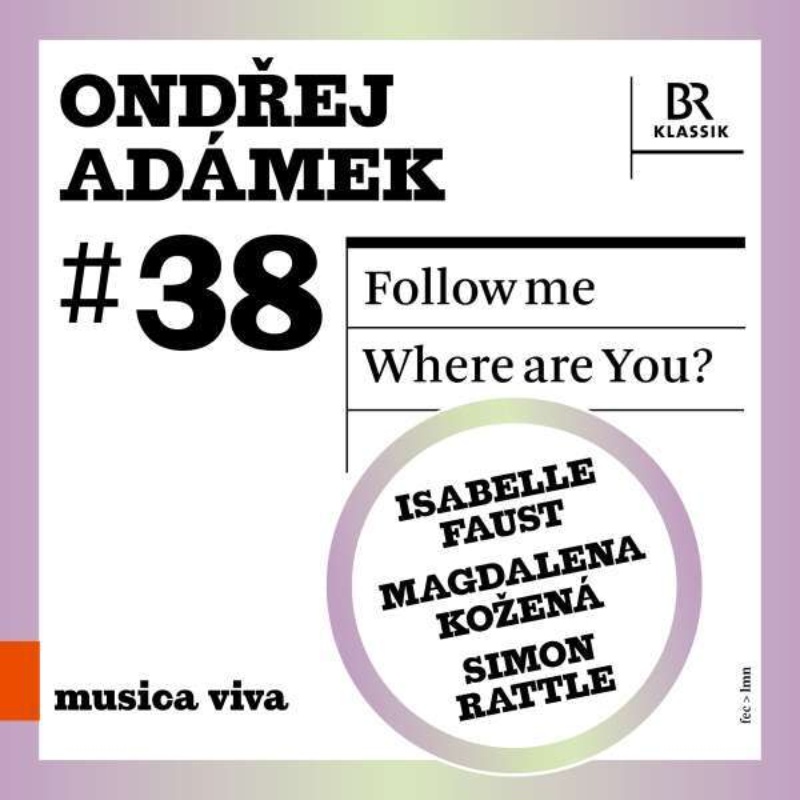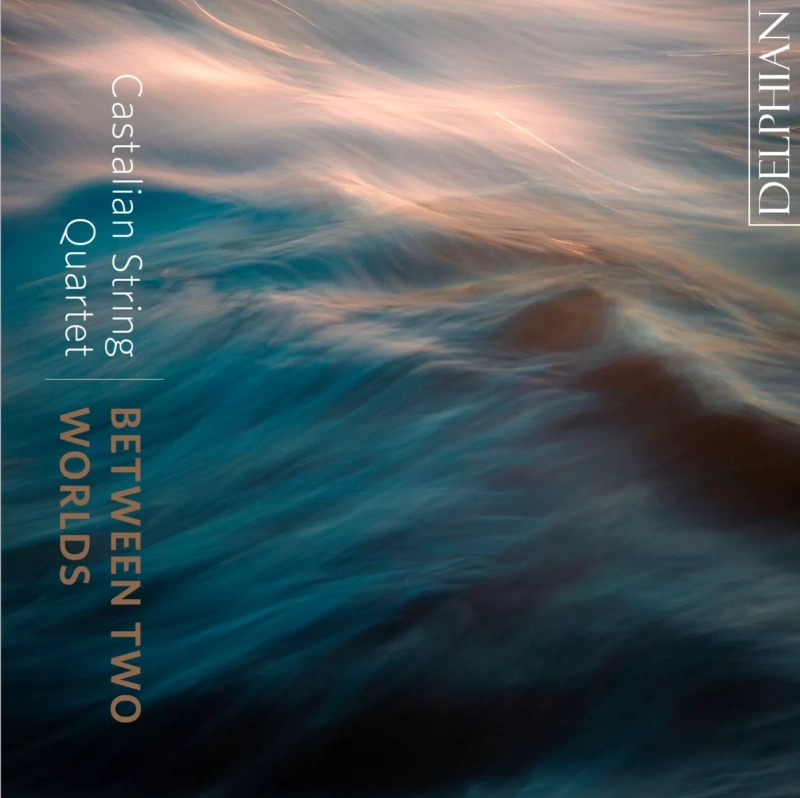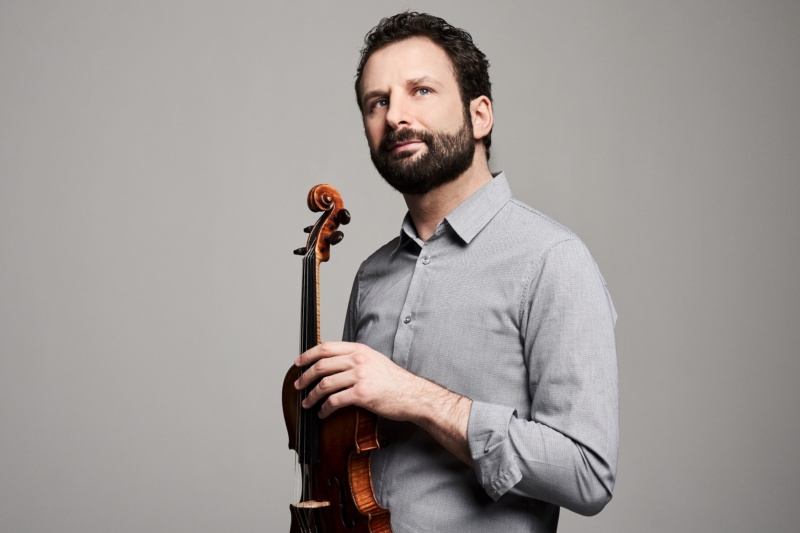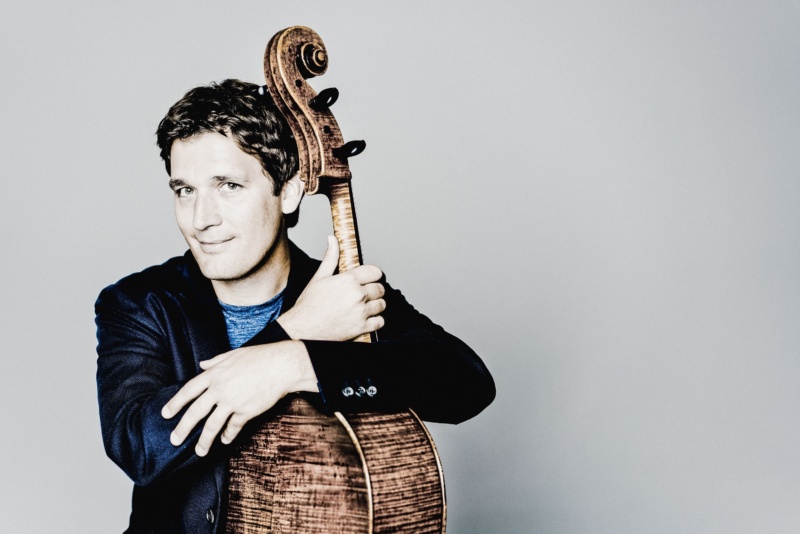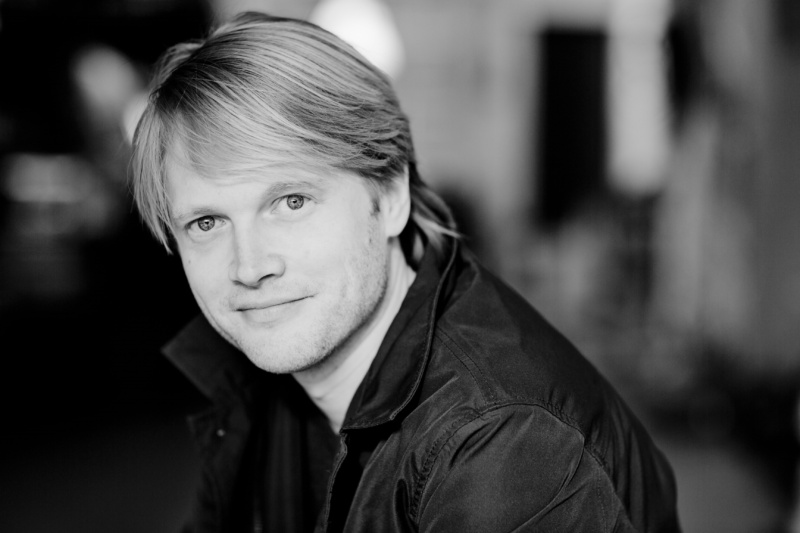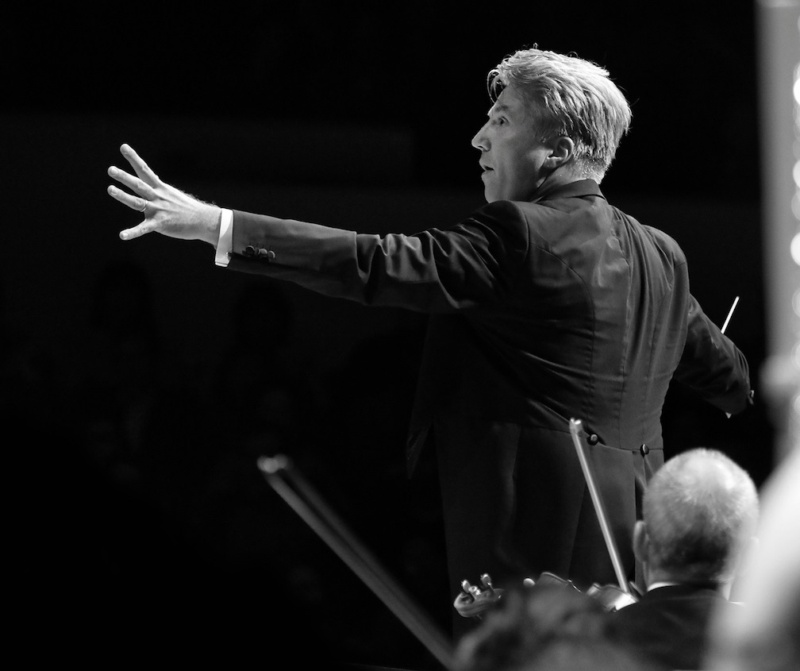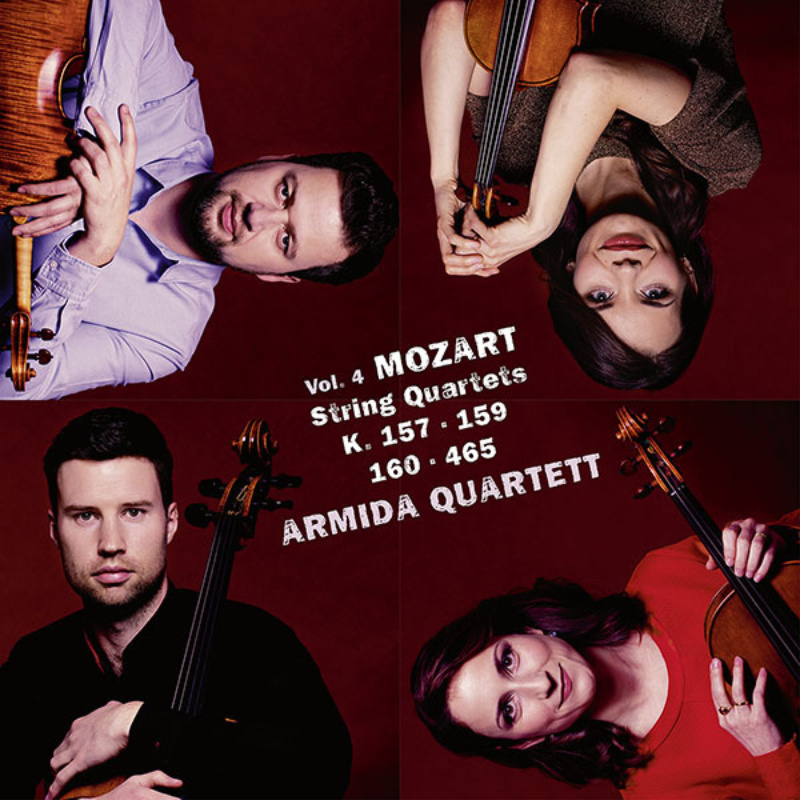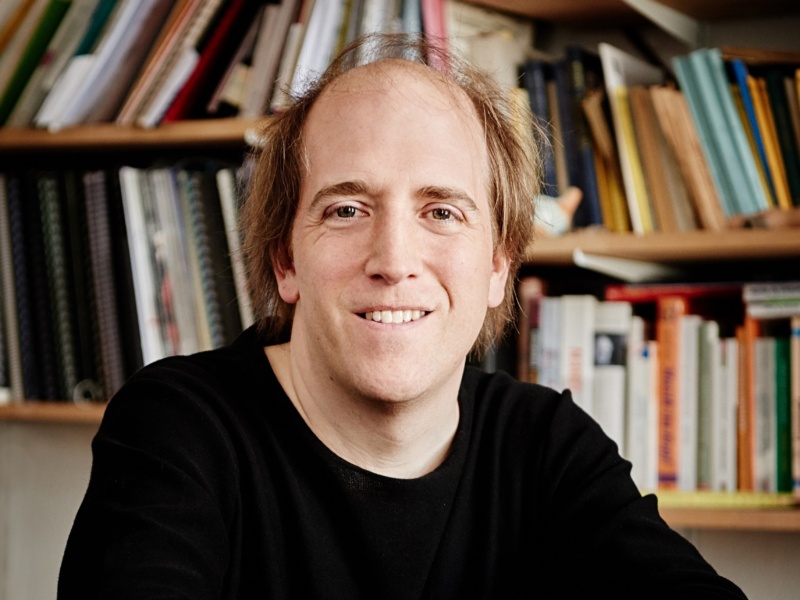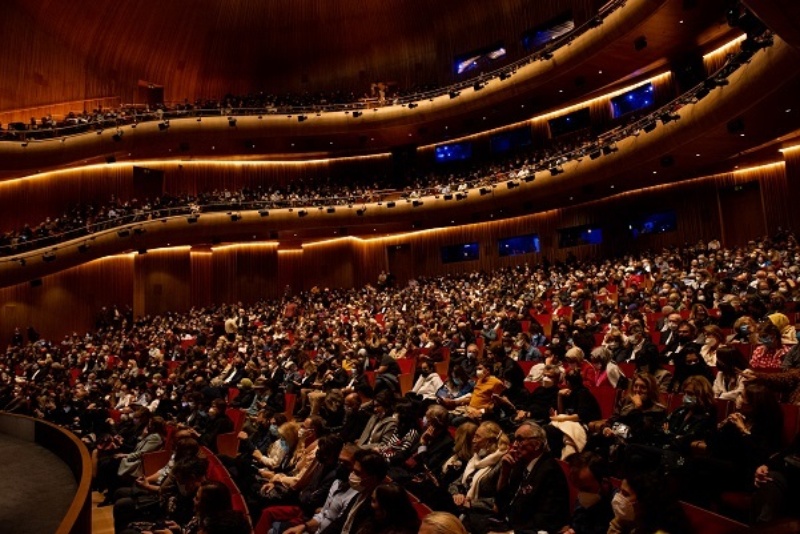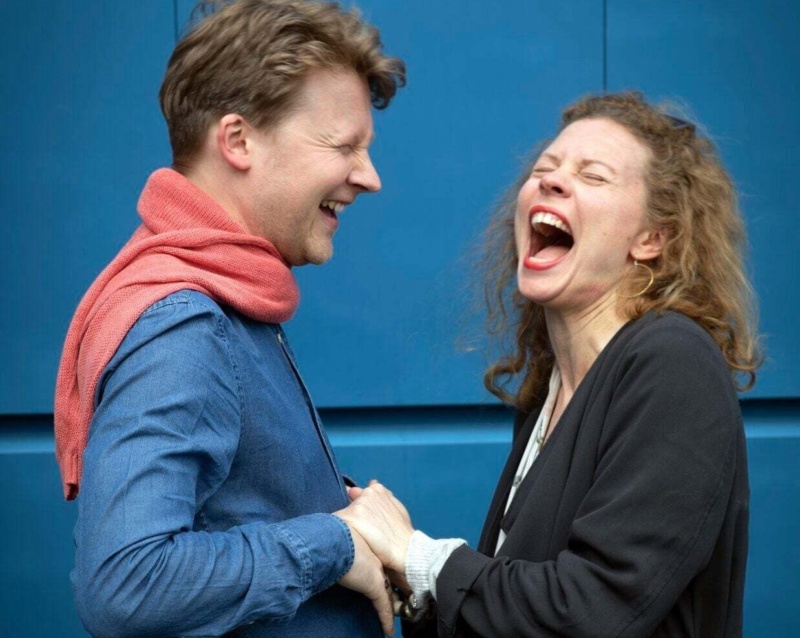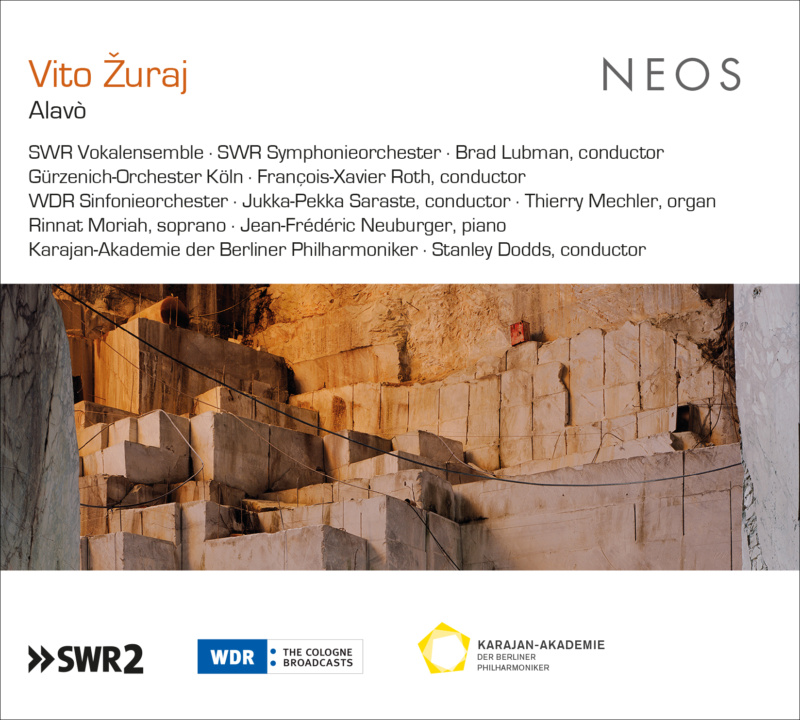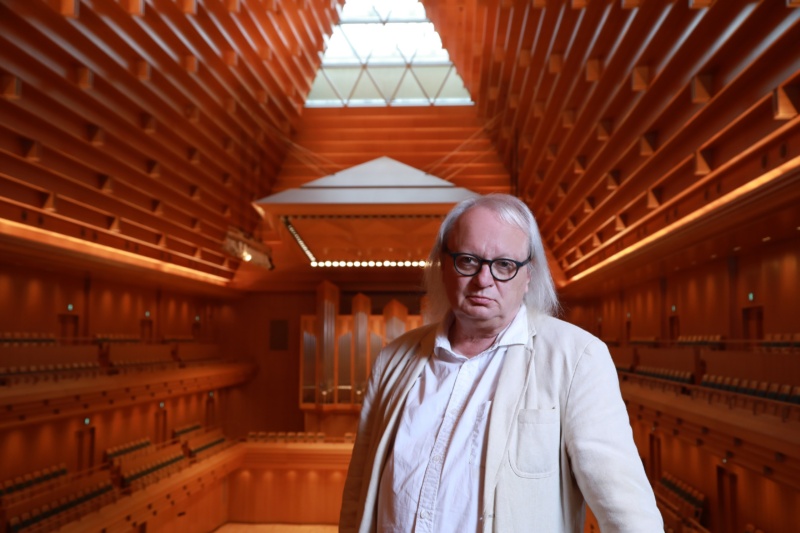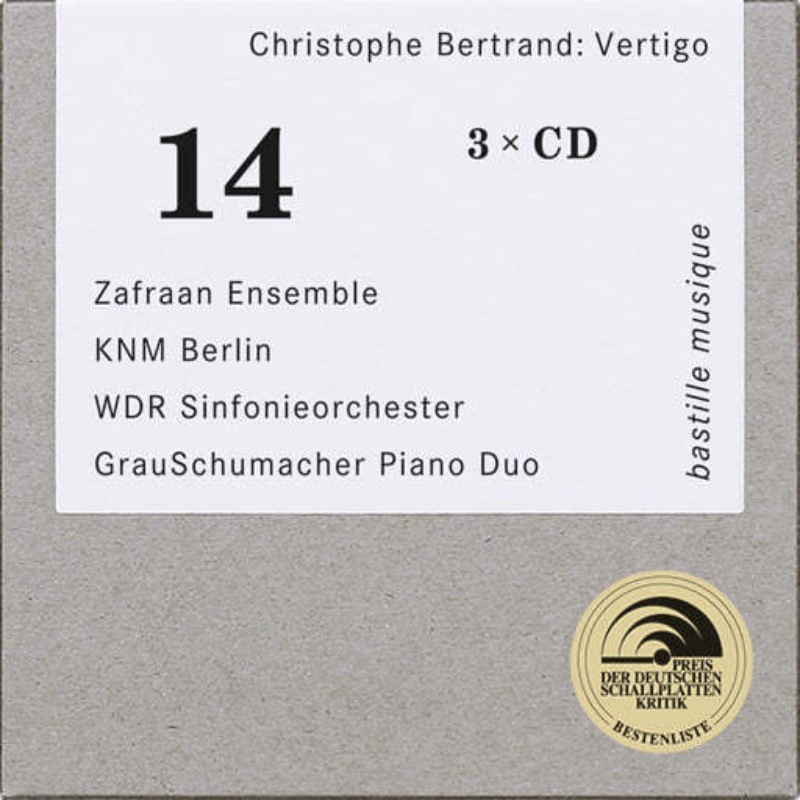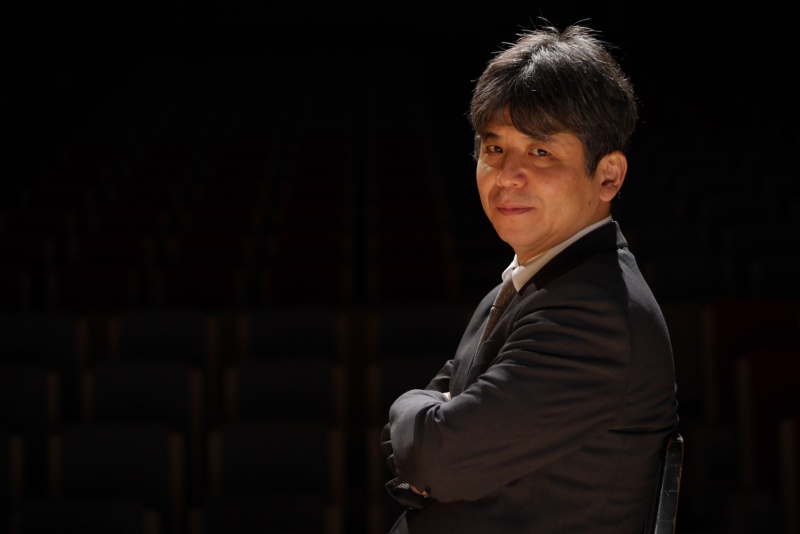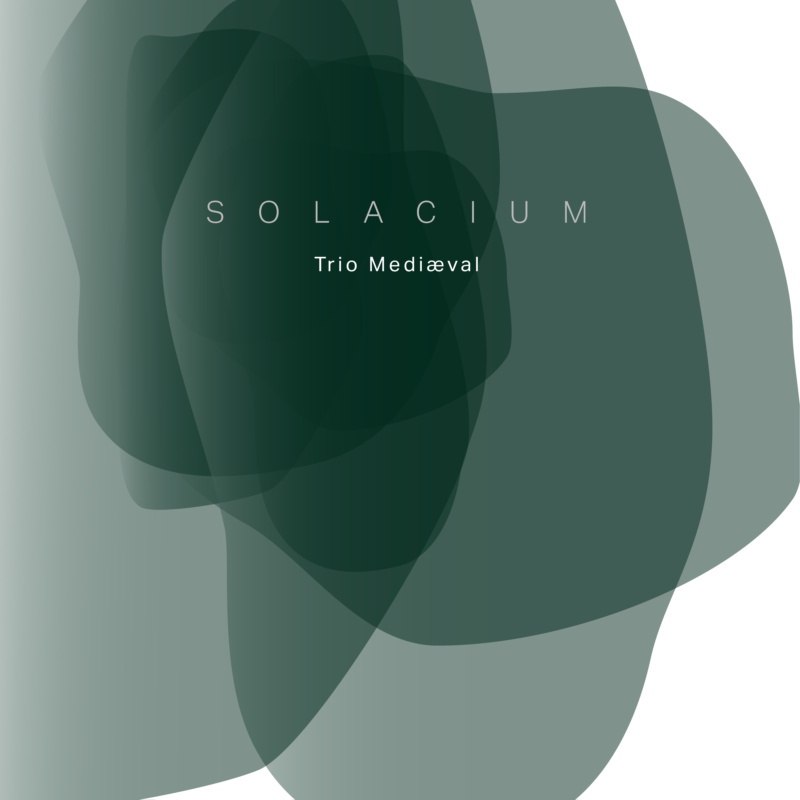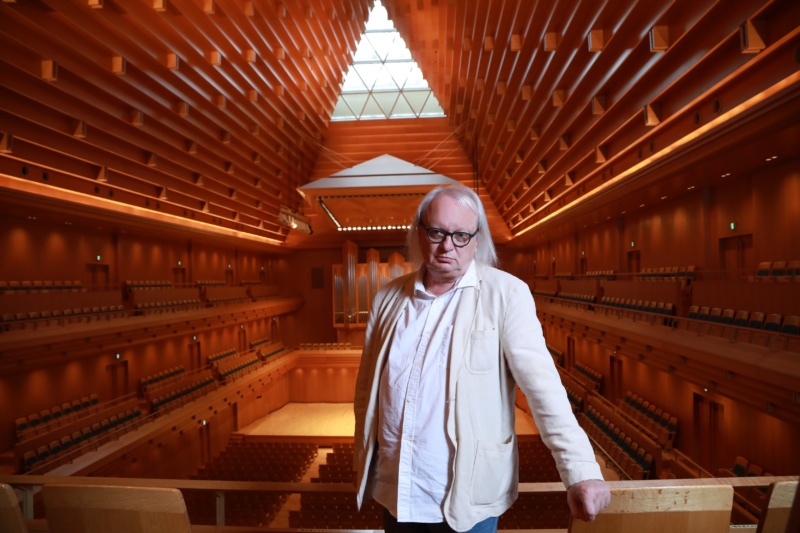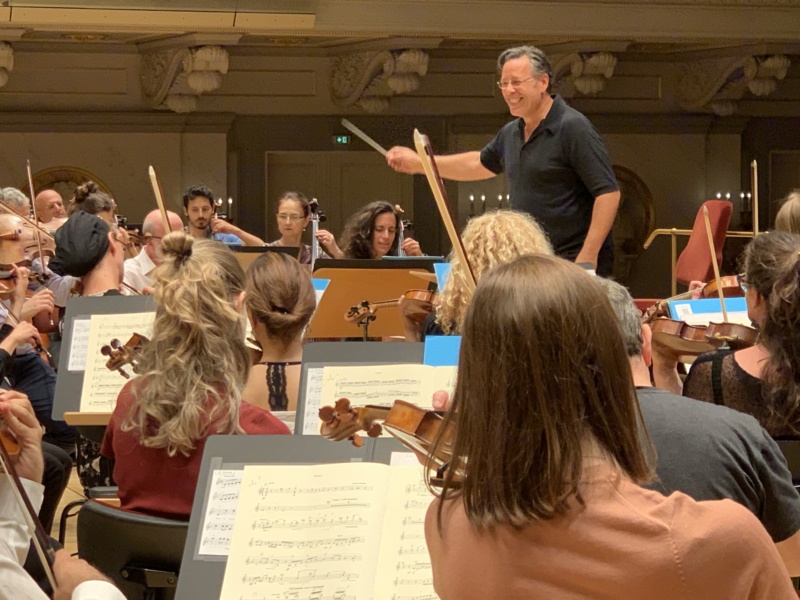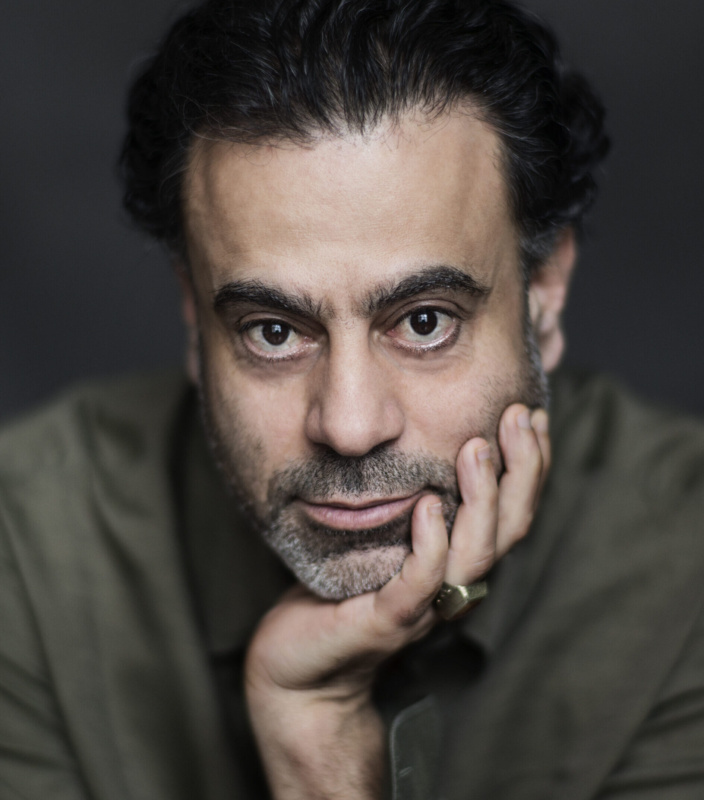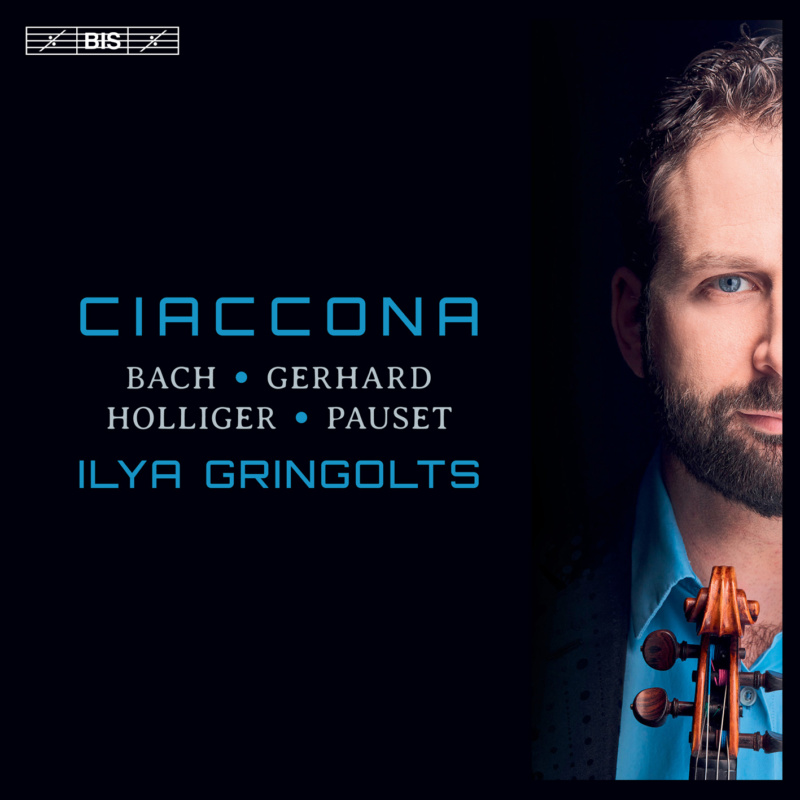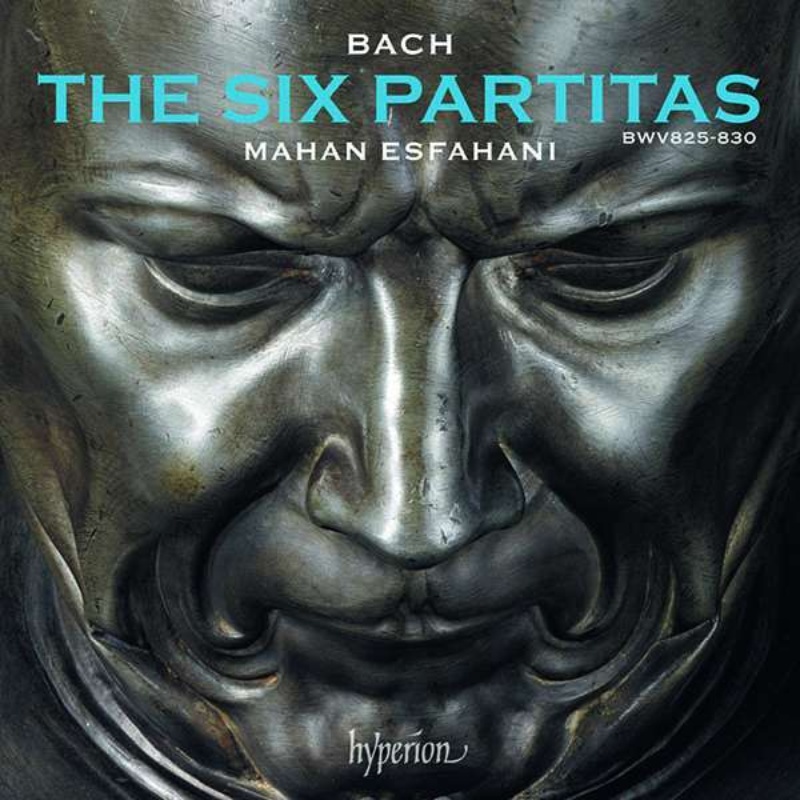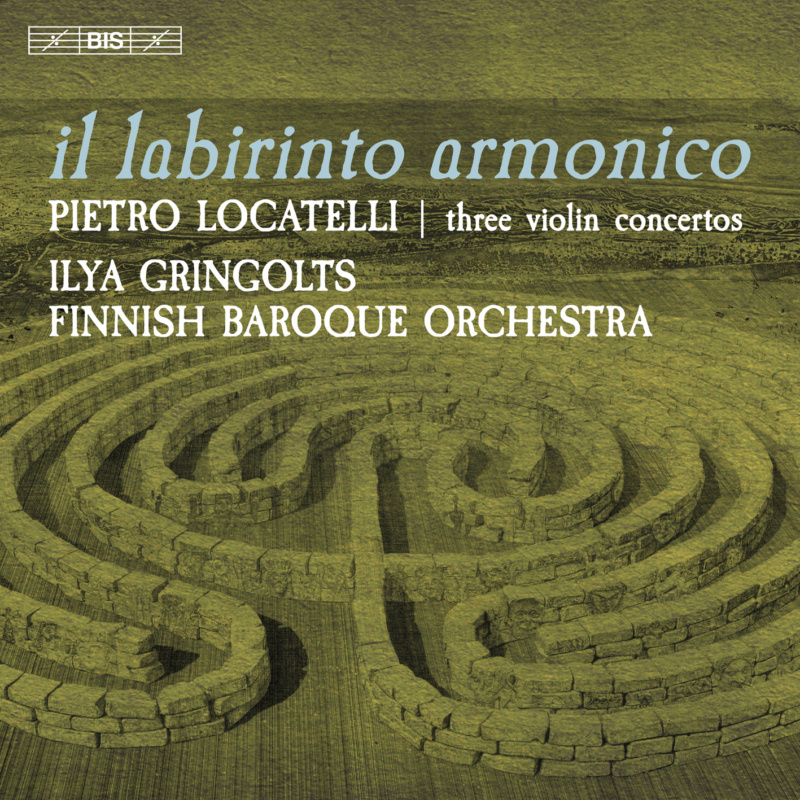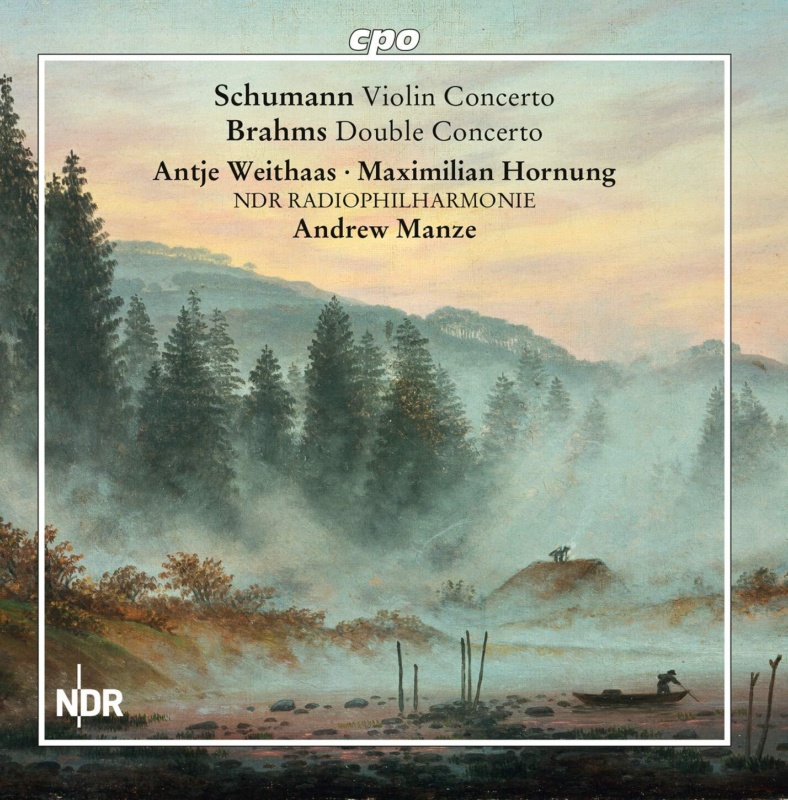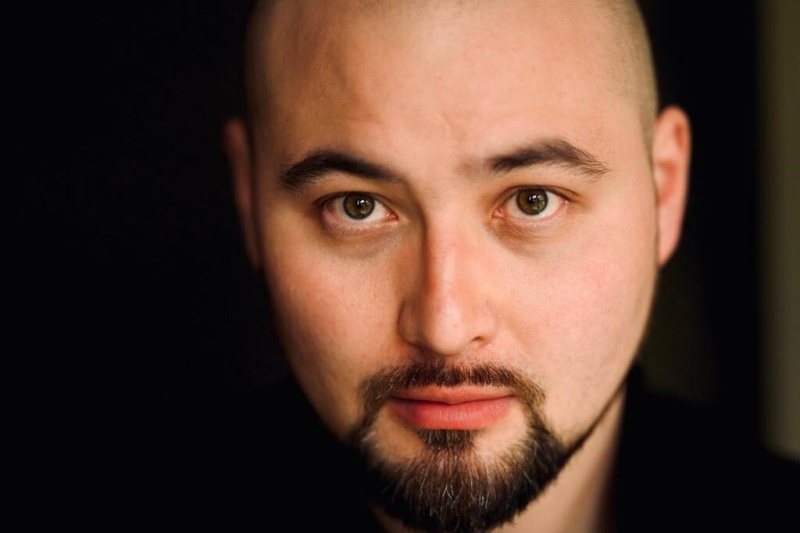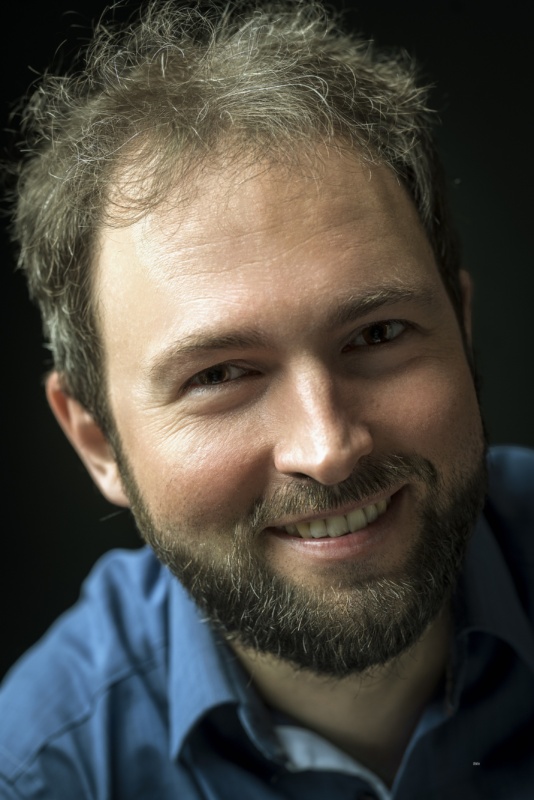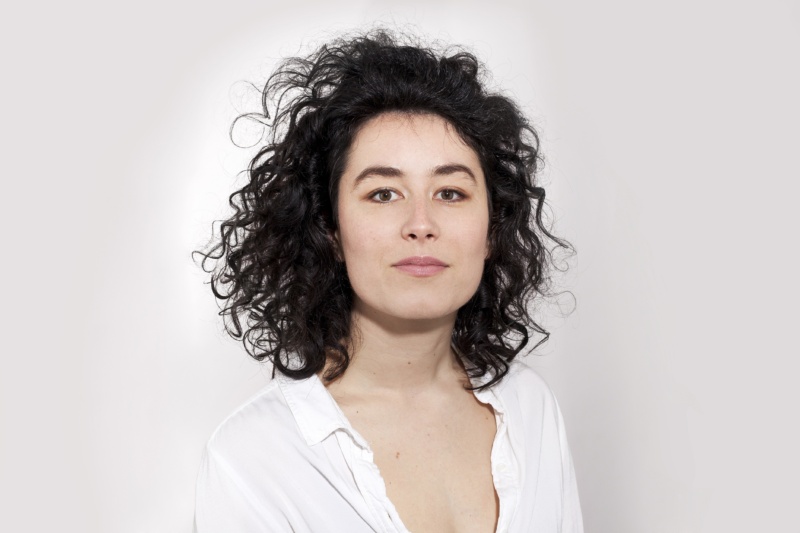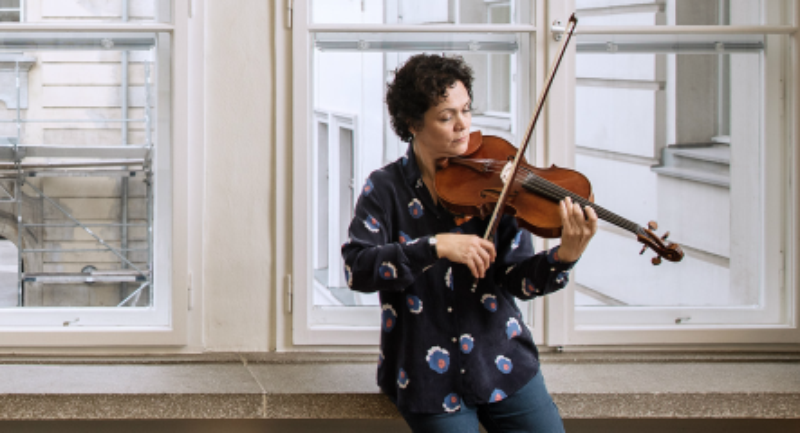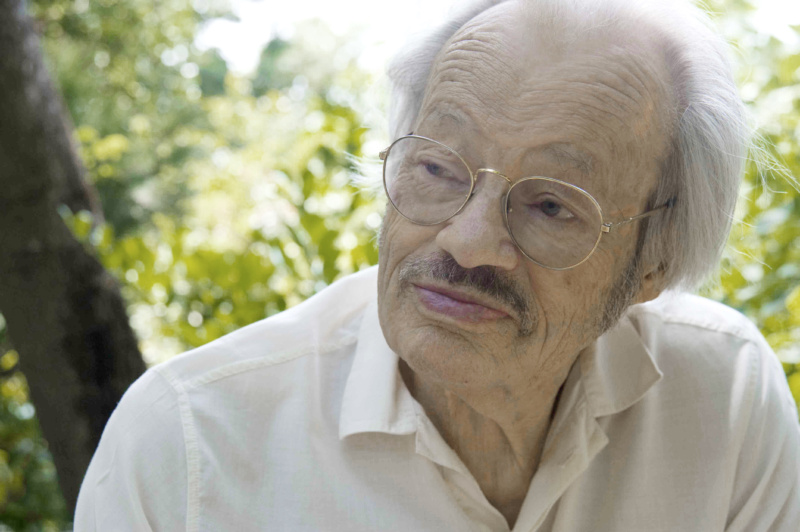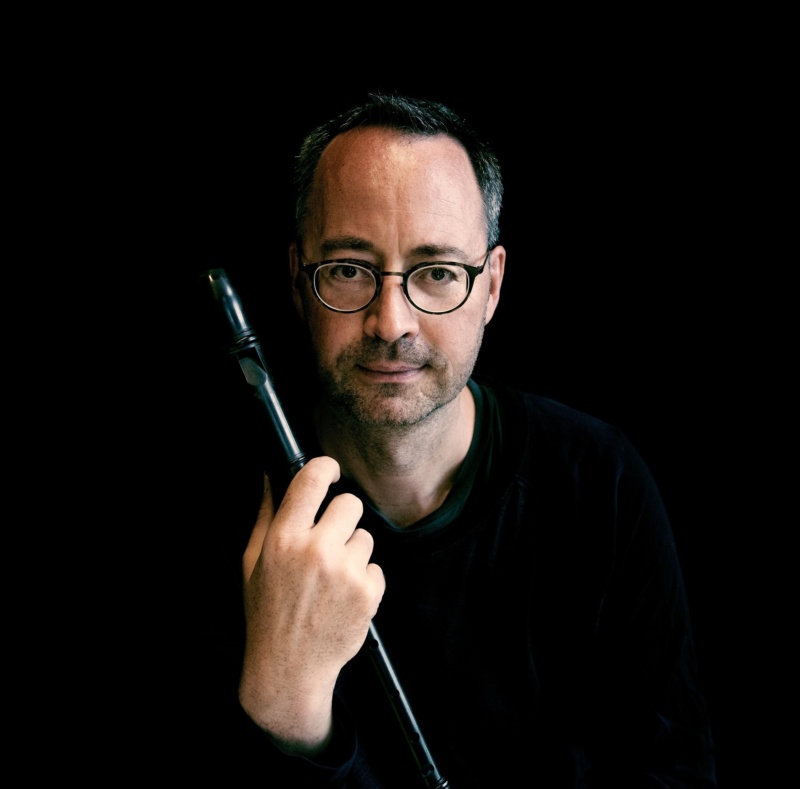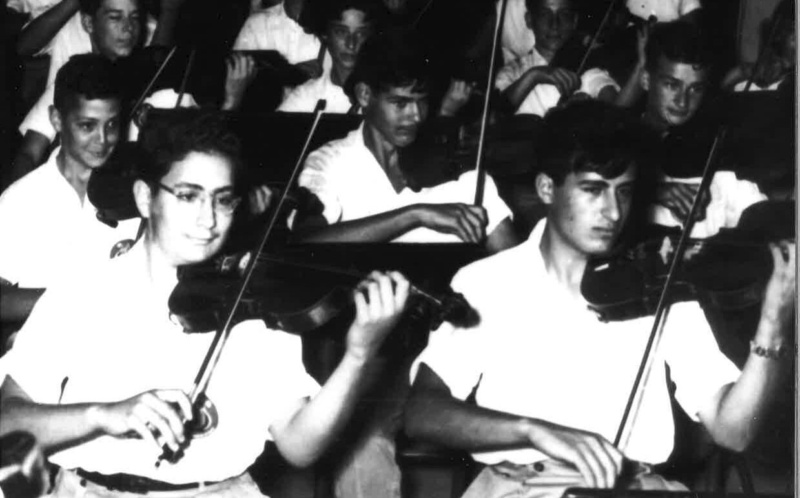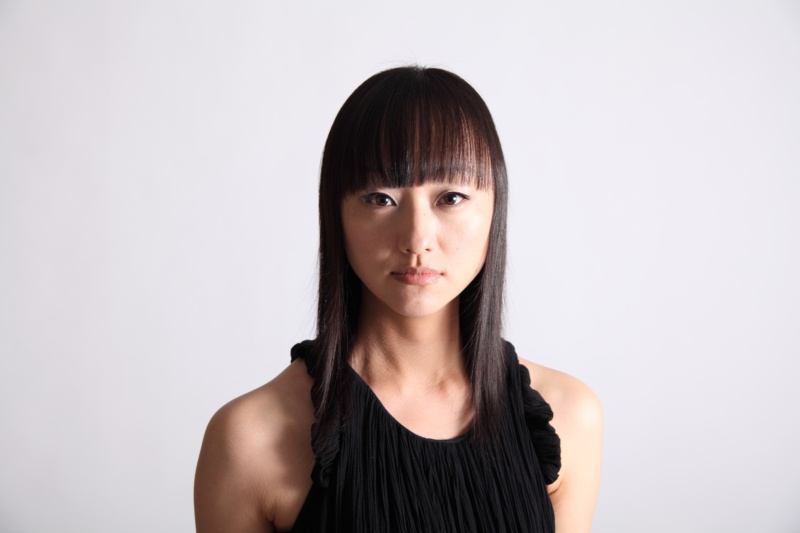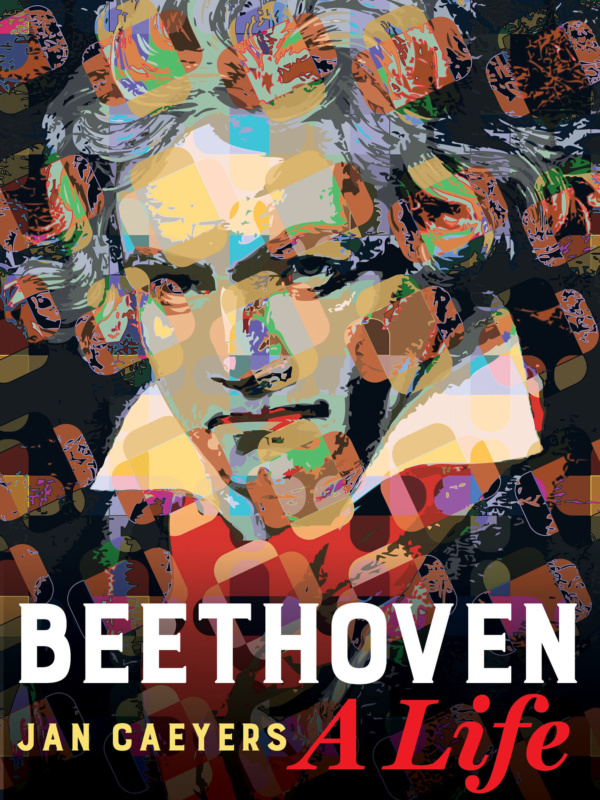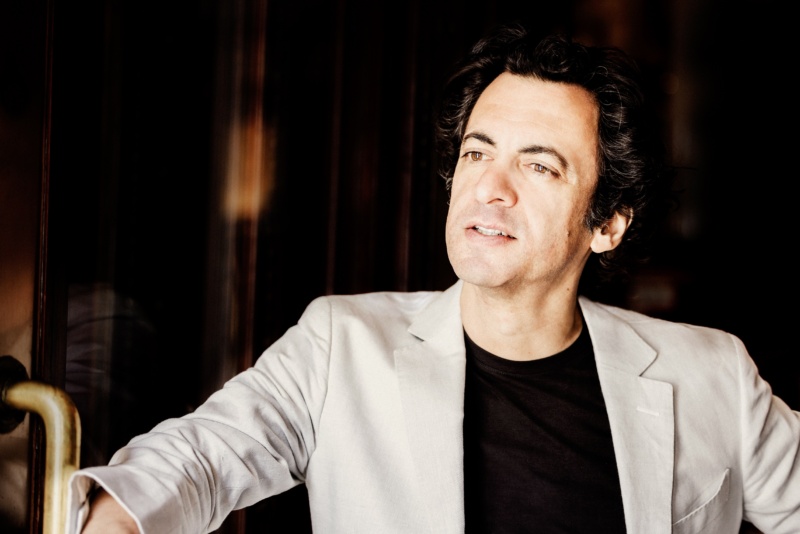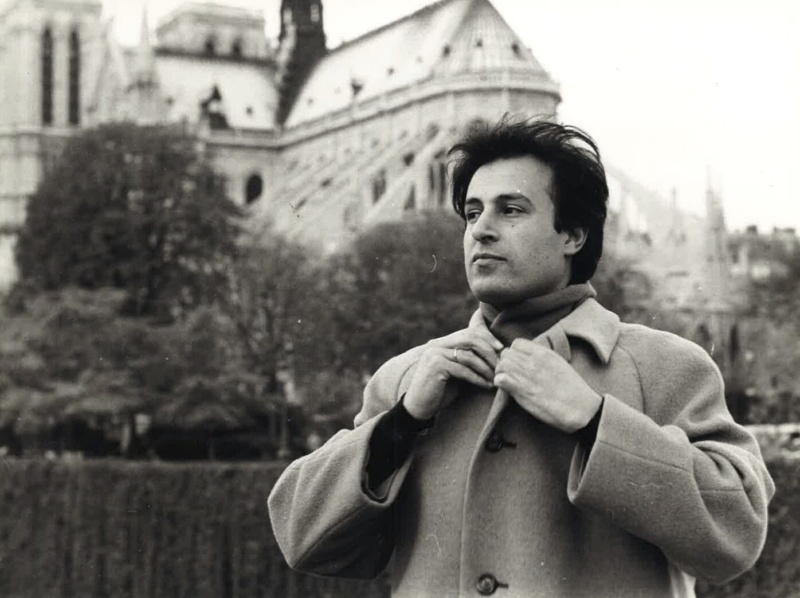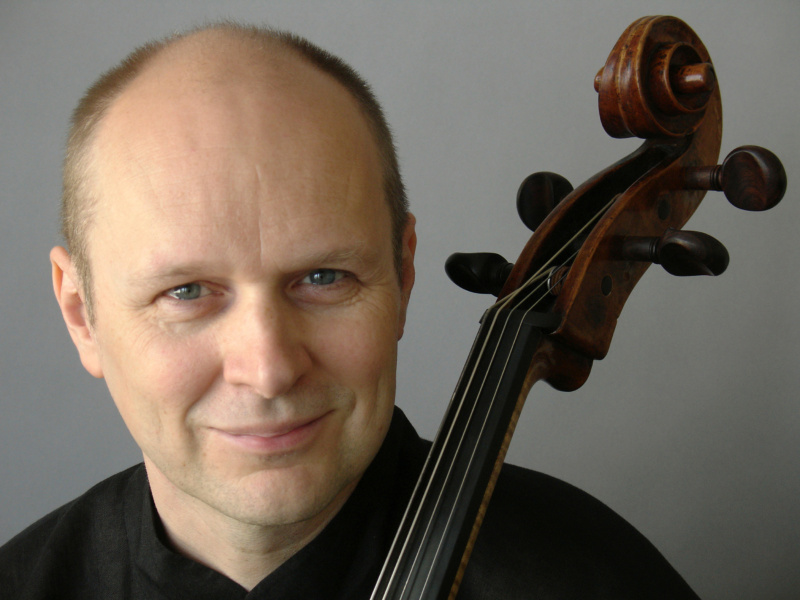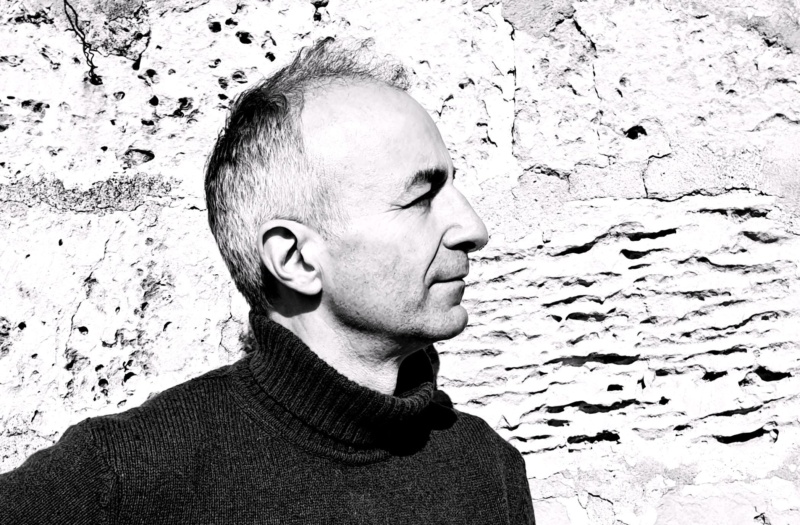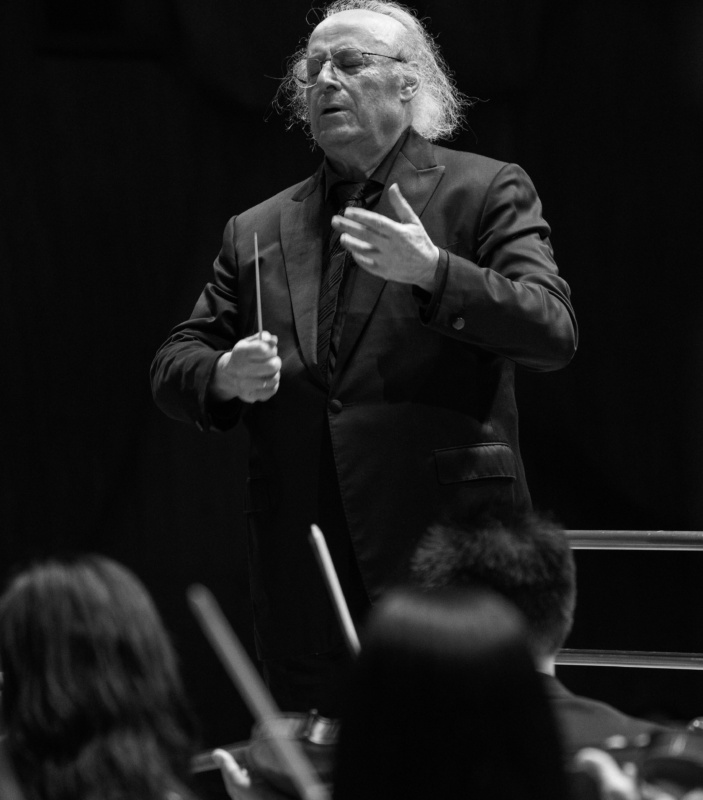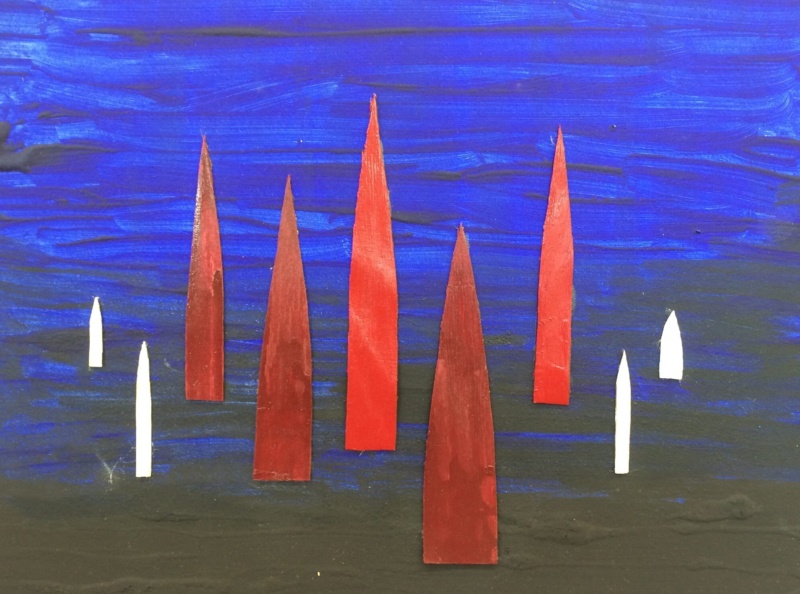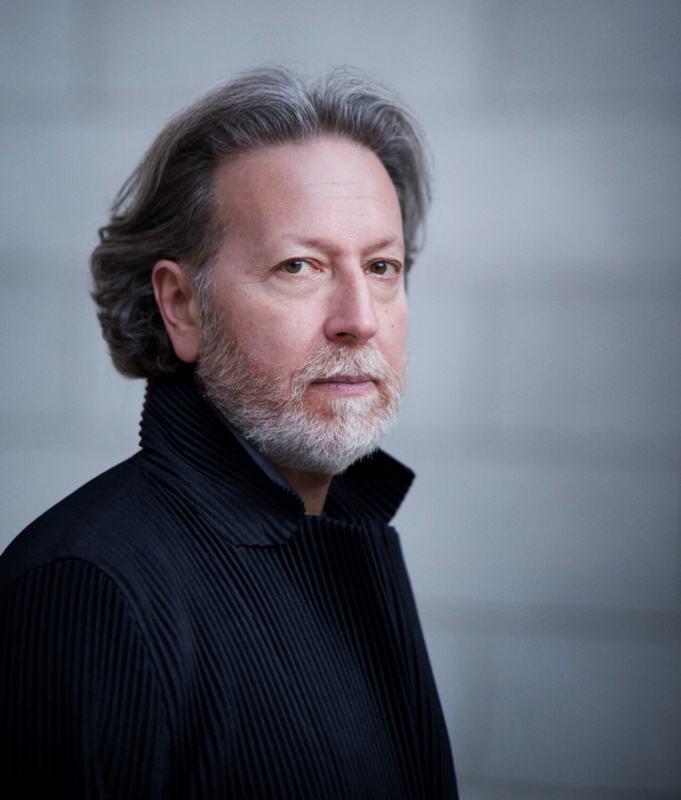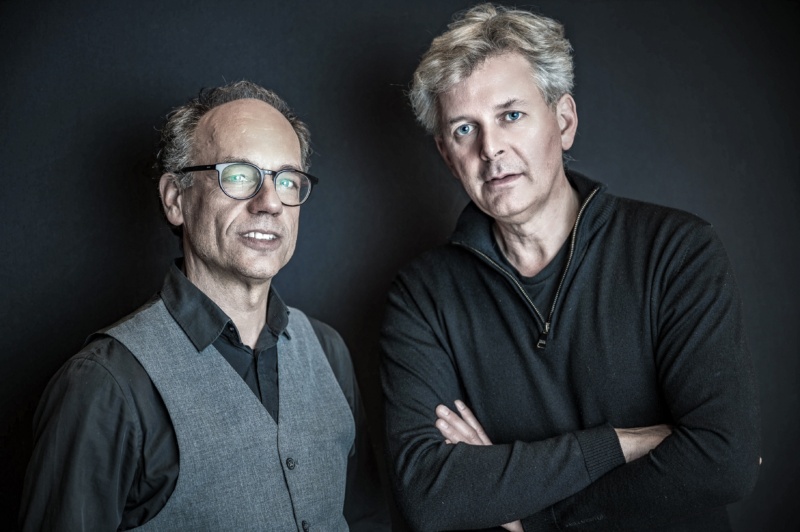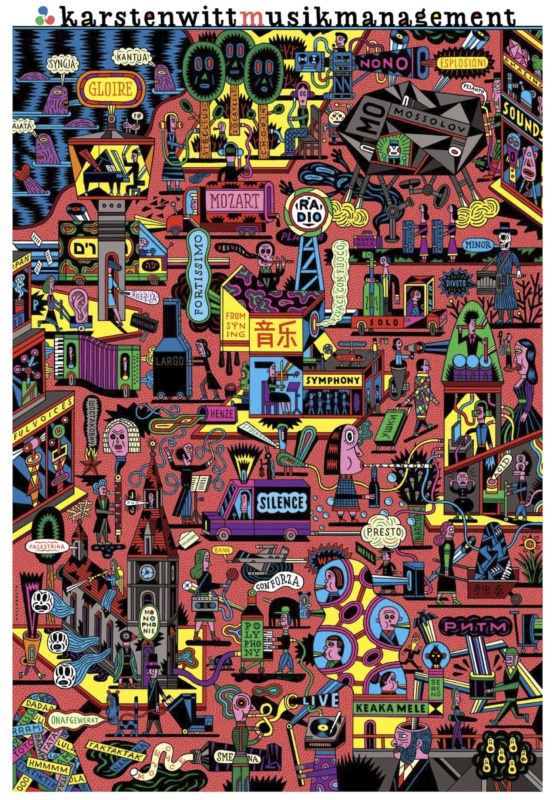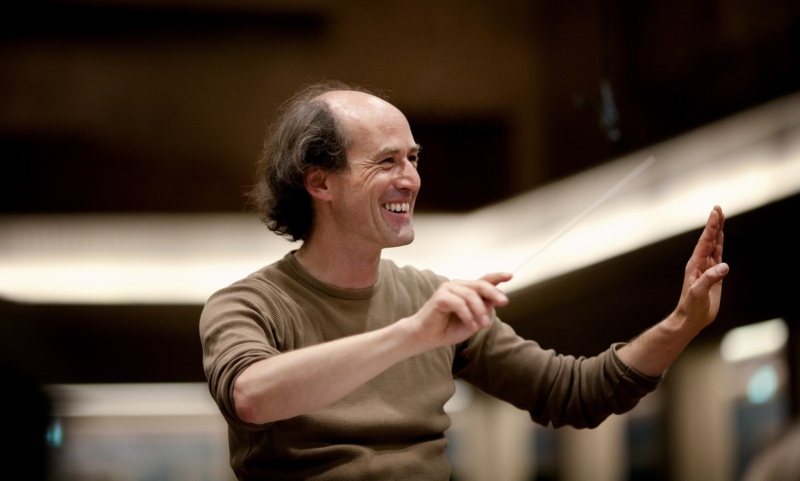It is Sarah Wegener’s third encounter with Jörg Widmann’s Drittes Labyrinth: in February 2015 the soprano will perform the solo part in the roughly 50-minute-long piece for voice and large orchestra at Casa da Música with the Orquestra Sinfónica do Porto under Peter Rundel. The world premiere at the Kölner Philharmonie was a turbulent one for her; the music came at the very last minute. “It was extremely nerve-wracking because the piece is unbelievably difficult,” she remembers during our discussion.
“We had so little time that Jörg Widmann rang me and we spent three hours going through the score together. We literally practised over the phone.” Laughing, she reconstructs the situation: “I went diii daaa then he said, no no, a bit more diii diii.” The performance itself was a roaring success, even if it did involve palpitations. “On top of that, it was broadcast live on the radio! Everything worked out fine in the end because luckily I’m a quick learner and have nerves of steel. And the second performance in the Concertgebouw Amsterdam with the Radio Filharmonisch Orkest under Emilio Pomàrico was a lot more relaxed.”
In the run-up to the performance in Porto, she is pleased that not only the piece has become an old acquaintance. Working with Peter Rundel will also be a reunion. “I know him from the world premiere of Georg Friedrich Haas’s revised version of the opera Bluthaus at the Wiener Festwochen,” she says and tells of other partners with whom she enjoys working with and on a regular basis. The composer Georg Friedrich Haas is among them, so too is the oboist and composer Heinz Holliger, as well as conductors such as Emilio Pomárico, Michael Hofstetter and Frieder Bernius with whom she has performed many gems of the orchestral and oratorio repertoire in and around Stuttgart. “What unites us is that we are always thinking about the end result: the music takes centre stage. Many people who I am able to work well with are modest and I would also say that about myself. I don’t like rivalry at all.”
Since that world premiere, another member of her musical circle is Jörg Widmann. Their first meeting happened by chance at Stuttgart train station. The singer was picking up Georg Friedrich Haas from there to go through an operatic role together. “And he met Jörg Widmann on the platform by coincidence.” He was delighted to meet the singer who he had heard so much about and who he already had in mind for his Labyrinth.
Jörg Widmann also wanted to get Sarah Wegener on board as soloist in his work Dunkle Saiten. “At first I really didn’t want to do it because it’s far too high, downright risky,” explains the singer. “But the problem was that Jörg then said he would re-write it for me; he would do anything for me to sing it.” And laughing heartily, she adds: “Now I can’t get out of it.” The work, which received its world premiere in 2000 and is described by the composer himself as an “excess”, will take Sarah Wegener to three concerts in March with the NDR Symphony Orchestra under the direction of Thomas Hengelbrock.
The fact that Sarah Wegener’s concert calendar includes performances of contemporary works that present physical challenges as well as plenty of classical and romantic repertoire is a blessing to the singer. The beginning of 2015 features performances of Dvořak’s Stabat Mater with the Collegium Vocale Gent and the Orchestre des Champs-Élysees under Philippe Herreweghe and Beethoven’s Mass in C major, Op. 86 with the Deutsche Kammerphilharmonie Bremen under Hans-Christoph Rademann. “Traditional repertoire forms the bulk of my work after all. Oratorio, lied, chamber music. And I have to say, thank goodness for this foundation,” she says.
That said, New Music also continues to give her stimuli for the classical repertoire. “When I sing a new opera such as Bluthaus, for example, followed by a programme with Bach, it’s so inspiring, a real experience,” she says. “New Music opens one’s ear in another way, for example it makes one listen more deeply. When you sing a Schumann lied afterwards, it certainly sounds different, more expanded. Moreover, with New Music one is constantly thinking: Oh, I won’t be able to manage that, I can’t do that – you come up against barriers, practise and manage it in the end. In this instance a leopard can change its spots; you gain a freedom that can also be used in traditional music.”
However, she does not choose to sing every new work that is offered to her randomly. “The music has to be sensual in some way,” she says and with a laugh adds, “Georg’s music is of course pure sensuality.” Georg Friedrich Haas has entrusted substantial works to the singer for some years now, including ATTHIS for soprano and 8 instruments and the cycle …wie stille brannte das Licht, as well as main roles in his operas. The composer met Sarah Wegener in 2008 when she was covering the main role in the world premiere of his opera Melancholia. The composer walked into the room just as she stepped in as substitute during a rehearsal. “That was the start of a long musical friendship,” she says. A friendship that will lead her to two large opera houses in 2015 and 2016: the world premiere of a new opera with a libretto by Jon Fosse will take place in the autumn at the Royal Opera House Covent Garden, with the German premiere following in 2016 at the Deutsche Oper Berlin. Sarah Wegener will also sing one of the main roles at the Schwetzinger SWR Festspiele in Koma, the third and final part of Georg Friedrich Haas’ opera trilogy based on texts by Händl Klaus. The opera follows Bluthaus (2011) and Thomas (2013).
“It may sound silly, but it just seems to happen to me,” explains the soprano regarding these prospects. “I try not to force anything; these large engagements come to me of their own accord.” The common denominators of allowing things to come to her, following an impulse with great enthusiasm, and being inspired by encounters are perhaps characteristic of Sarah Wegener’s entire musical career. Her initial love of music was sparked intuitively and unencumbered by family input (“My parents are both musical, they just don’t know it”) in the headmaster’s office of the local music school. With curiosity, the young Sarah Wegener marvelled at an enormous instrument. Would she like to hear how it sounds, asked the headmaster. “And then he leaned this double bass again me and played the low E string. Everything vibrated and that’s when I fell in love.”
Today the double bass no longer plays a large role in Sarah Wegener’s life: “Only for grounding and pitching. But apart from that, I’m out of practice.” However, she does still profit from her orchestral past and her degree in school music with double bass as her main subject. “I have a great foundation thanks to playing the double bass. It has trained my ear immensely, as did my eleven years leading a church choir. I hear from the bottom up through the whole orchestra,” she explains. She therefore also feels completely contented when standing as the soloist in the middle of the orchestra, as was the case recently in her celebrated performances of Strauss’ Vier letzte Lieder. “That’s my cup of tea, really great,” she gushes. “On the opera stage you’re further away from the orchestra. In orchestral lieder, I feel at home being right at the centre of the action.”
With so much enthusiasm for orchestras, one might ask why Sarah Wegener switched to being a singer. “I don’t know how to explain that either,” she says but tries to anyway. “In 2002 towards the end of my studies, something happened to me that forced me to stop completely. I couldn’t do anything; I was exhausted and stayed at home for about nine months. During this time, something from deep within me came to the surface, it wanted to get out, and suddenly I sang. Before that moment, I had almost never done that! I simply realised: of course, I just have to SING! In effect, I was walking along a path without looking to the left or right, and then I was forced to stand still. I was able to look around me and I noticed, yes hang on a moment, I’m going in THAT direction.”
Looking back, Sarah Wegener is amazed at how consistently the stations along this path have emerged, how she now wanders along it with her high-profile musical partners visiting the major European opera houses and concert halls and performing almost every kind of repertoire, from her own lieder recital ideas to large new orchestral works. One gets a sense that she feels comfortable with this success. She’s clearly not addicted to it – at the most to making music itself. And she doesn’t always need the big stage for this obsession; sometimes a few friends in her living room are enough. “I’ve revived the tradition of salon music at my home,” she says and describes the strict rules of her house concerts: “Those who practise have to leave. Perfectionism upsets the flow. We therefore try to make music outside people’s subject areas wherever possible, so my guests don’t play their main instrument. It’s just supposed to be a bit of fun.”
Nina Rohlfs 01/2015 | Translation: Celia Wynne Willson
